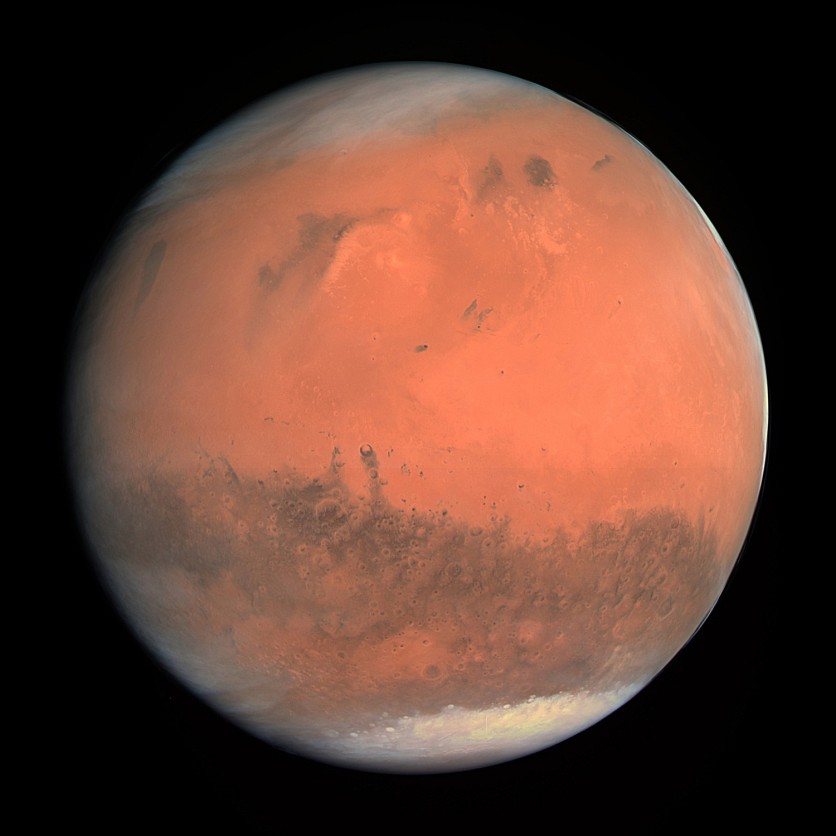Another country will soon join the elite group of nations that have sent a space probe to Mars as the United Arab Emirates attempts to launch its first-ever space mission to the Red Planet.
The Middle East nation prepares to send its Mars orbiter, which they called Hope Mars Mission or Hope by late July or early August this year, according to a report in Space.com. The orbiter will study the Martian atmosphere and climate. It will investigate the daily and seasonal weather cycles, weather events in the lower atmosphere, and the weather patterns in the different regions of the Red Planet.
If successful, the UAE will become only the fifth nation to send a space probe to orbit Mars. Thus, the country is looking forward that by February next year, their orbiter will be circling Mars. The Mars orbiter will be launched from the Tanegashima Space Center in Japan on board a Mitsubishi Heavy Industries H-IIA rocket.
Omran Sharaf, the mission lead for the Hope spacecraft, said that more than that of going to Mars, the mission's bigger goal is to expedite the development in their educational sector and academic sector. Sharaf added that the mission began as an instruction from UAE Prime Minister Mohammed bin Rashid Al Maktoum to send a UAE-built science probe to Mars before the country's 50th anniversary in December 2021.
Sarah Al Amiri, who is the UAE minister of state for advanced sciences, said that the Hope mission would provide a mindset the youth will play a crucial role in the country's post-oil economy. Al Amiri added that it is about broadening their horizon and taking on the challenge at a time when the Arab state is relatively comfortable as a nation.

The Goal of the Mars Mission
"The science needs to be unique. Whatever you do, it should not be something that's been done before." That was the directive that Sharaf received from the prime minister.
The team of the Hope mission reached out to many Mars scientists around the world to mold the objective of the Mars orbiter. The UAE space agency linked with the Mars Exploration Program Analysis Group to determine the scientific investigation that the Mars orbiter can do in its mission.
From that discussion with scientists, they finally found a mission for Hope orbiter. There is a significant gap in our understanding of the Martian atmosphere. Al Amiri said that "we don't have a full understanding of the weather system of Mars throughout an entire year."
Al Miri said that earlier and present missions collected observations on the Martian weather for only a couple of times throughout a day. Most measurements come from surface missions, and the observations are only limited to a particular location. The limited data on Martian weather does not offer much explanation of how it works. Hope Mars orbiter aims to fill up the gap and provide valuable information about the Martian weather. The space probe will track the events within the Martian atmosphere for a year. It will also study the connections between layers of the Martian atmosphere. Scientists can use the data from the Mars orbiter to understand the Martian weather and find an explanation of how the Red Planet Mars lost some of its atmospheres over time.
The Hope spacecraft carries a camera sensitive to optical and ultraviolet wavelengths and spectrometers tuned to infrared and to ultraviolet light. The three instruments must take simultaneous measurements to collect data across the different layers of the Martian atmosphere and allow scientists to stack the data together.
Al Amiri shared that to conduct its measurements, the Mars orbiter Hope carries all its instruments on the same arm. Also, the space probe has a precisely tuned 55 hour-long orbit that enables us to capture two different views of the planet. "One in which the planet rotates beneath the spacecraft, and one in which the spacecraft keeps pace and watches the same spot over time," Al Amiri said. She added that these views would allow scientists to put together a complete map of the Martian atmosphere.
Launch Date
The UAE space agency said that the spacecraft has already arrived in Japan last April to ensure it did not get caught in the lockdown due to the pandemic.
Sharaf admitted that if everything goes according to plan, the Mars orbiter will arrive in the Red Planet in February. The spacecraft will spend its two years learning more about the Martian atmosphere. Sharaf added that after a year in orbit, they would evaluate if there is a need to extend the mission.
Sharaf shared that he terrified since other countries like the US and China are also eyeing to send their spacecraft to Mars.
Also Read: China Names Mars Mission 'Tianwen;' Will Start Its Quest Soon
ⓒ 2025 TECHTIMES.com All rights reserved. Do not reproduce without permission.




